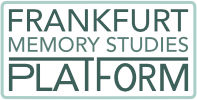Dr. Lovro Škopljanac (University of Zagreb)
May 14, 2024
4 pm CET
IG 1.414, Campus Westend
Download the poster here.
This presentation is based on data from interviews conducted with 1005 Croatian respondents about literary texts which they had read, and how they remembered them. It was collected as part of the PoKUS project, focusing on how non-professional readers conceptualize and use literature (https://pokus.ffzg.unizg.hr/en/). It is an ongoing project which serves to record and give a voice to the 99% percent of non-professional literary readers, who have historically been underrepresented compared to the 1% of professional readers (writers, critics, editors, professors, teachers…), whose memories and opinions formulate our collective memory of literature. The presentation will first lay out the project methodology, and then provide its basic findings. These will include an overview of the reader sample, a list of the most remembered texts and writers, and a breakdown of the texts by year of publication and genre. The second part of the presentation will look into some particular aspects of the readers’ collective memory, such as the discourse they used to talk about literature, the most impressive parts of the text, the emotions they felt during reading, their reading motivation, writer recognition, and transmedial memory. Finally, as the last and integral part of the presentation, any interested participants may request any information available from the database (e.g., about a particular text or writer). The author will then try to provide a suitable answer based on the data at hand, to demonstrate how well (or not so well) the everyday memories of literature are represented in it.



